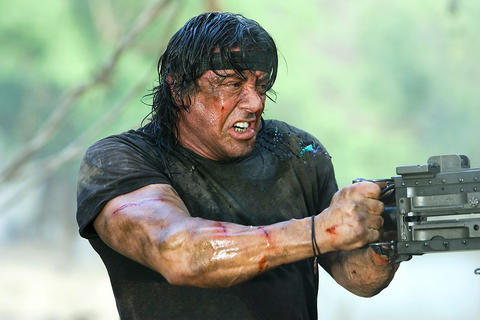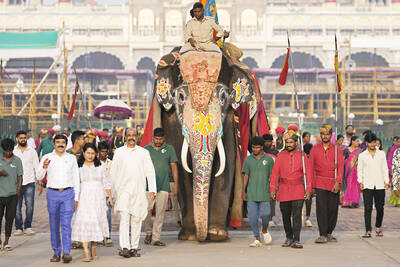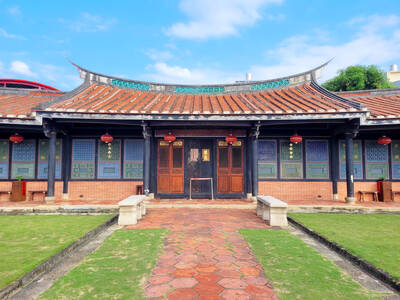Has it really been 20 years? Last time we saw John Rambo, in 1988, he was involved in some Cold War endgame stuff in Afghanistan, and his action-movie franchise, begun in 1982 with First Blood, seemed to be sputtering toward self-parody. Since then Rambo has faded into semi-obscurity, though his name is sometimes still used, perhaps a bit unfairly, as a synonym for revanchist, go-it-alone militarism.
When I saw the posters announcing his imminent return, I wondered whom he would be fighting this time. In Rambo: First Blood Part 2, the cumbersomely titled centerpiece of the earlier trilogy, he went back to Vietnam to collect payback both from the Communists and, indirectly, from the pusillanimous desk jockeys who supposedly messed up that war the first time around. Given this resume, it seemed reasonable to assume that now he might be heading back to Central Asia to hunt down Osama bin Laden, a job no one else seems inclined to tackle.
But it turns out I misjudged Rambo, and maybe also Sylvester Stallone, who directed and wrote (with Art Monterastelli) the newest Rambo and who plays the title character. When we first encounter him, this weary warrior has retreated from geopolitics, passing the time at a remote river station in the Thai jungle, where he hunts poisonous snakes and dabbles in blacksmithing. Old Rambo seems kind of depressed, to tell the truth, until his wrath is stirred by the viciousness of the Burmese Army.

PHOTO:COURTESY OF COLDPLAY
Burma? But why not Burma? (In this movie, no one calls it Myanmar.) As a precredit montage of actual news clips reminds us, the military government of that nation has been engaged not only in widespread authoritarian abuses but also in a brutal, long-running campaign against the Karen ethnic minority. And it is with the Karen that Rambo, once roused from his weary cynicism, throws in his lot. No longer the bloody avatar of wounded American pride, he seems more inclined toward humanitarian intervention - a one-man NGO with a machete. Will he show up in Darfur next?
Not that he is motivated by abstract moral concern. (And not that he is entirely alone. Some grumpy mercenaries are on hand to add firepower and profanity to the cause.) With Rambo, the political is always personal. He temporarily joins the Karen cause because some Western aid workers, carrying only Bibles, medical supplies and an air of sanctimony, hire him to ferry them upriver into Burma. He is skeptical about their mission, and their leader (Paul Schulze) seems like kind of a jerk, but something about Sarah (Julie Benz), the only woman in the group, touches Rambo's soul. This is not a matter of sexual desire, but rather the kind of spiritual awakening that can be expressed only in misty abstractions. ("What you're trying to do is change what is?" "And what is?" "Go home.")
Sarah wonders why Rambo - she calls him John - has stayed away from the US for so long. (This is partly answered in a dream sequence flashing back to some of the earlier episodes.) "Don't you want to see what's changed?" she asks. One thing that has is that women in action movies are encouraged to do their own fighting, but Stallone is old school in this regard. Blowing heads off and slicing abdomens is man's work. Benz is on hand to scream, gasp, fall in the mud and huddle in a damp bamboo cage, waiting to be raped by the Burmese bad guys or rescued by Rambo.
And these bad guys make the Vietcong in the second Rambo movie look like paintball-slinging weekend warriors. Rambo is, for most of its fairly brief running time, a blood bath punctuated by occasional bouts of clumsy dialogue. There are beheadings, mutilations, disembowelings - enough gore to rival Apocalypto.
But the movie does have its own kind of blockheaded poetry. The first installments in the cycle were better films than polite opinion might lead you to believe. At the time their politics made some people nervous, but to dwell on Rambo's ideological significance was (and still is) to miss his kinship with the samurais and gunslingers of older movies. Stallone is smart enough - or maybe dumb enough, though I tend to think not - to present the mythic dimensions of the character without apology or irony. His face looks like a misshapen chunk of granite, and his acting is only slightly more expressive, but the man gets the job done. Welcome back.

A jumbo operation is moving 20 elephants across the breadth of India to the mammoth private zoo set up by the son of Asia’s richest man, adjoining a sprawling oil refinery. The elephants have been “freed from the exploitative logging industry,” according to the Vantara Animal Rescue Centre, run by Anant Ambani, son of the billionaire head of Reliance Industries Mukesh Ambani, a close ally of Prime Minister Narendra Modi. The sheer scale of the self-declared “world’s biggest wild animal rescue center” has raised eyebrows — including more than 50 bears, 160 tigers, 200 lions, 250 leopards and 900 crocodiles, according to

They were four years old, 15 or only seven months when they were sent to Auschwitz-Birkenau, Bergen-Belsen, Buchenwald and Ravensbruck. Some were born there. Somehow they survived, began their lives again and had children, grandchildren and even great grandchildren themselves. Now in the evening of their lives, some 40 survivors of the Nazi camps tell their story as the world marks the 80th anniversary of the liberation of Auschwitz-Birkenau, the most notorious of the death camps. In 15 countries, from Israel to Poland, Russia to Argentina, Canada to South Africa, they spoke of victory over absolute evil. Some spoke publicly for the first
Due to the Lunar New Year holiday, from Sunday, Jan. 26, through Sunday, Feb. 2, there will be no Features pages. The paper returns to its usual format on Monday, Feb. 3, when Features will also be resumed. Kung Hsi Fa Tsai!

When 17-year-old Lin Shih (林石) crossed the Taiwan Strait in 1746 with a group of settlers, he could hardly have known the magnitude of wealth and influence his family would later amass on the island, or that one day tourists would be walking through the home of his descendants in central Taiwan. He might also have been surprised to see the family home located in Wufeng District (霧峰) of Taichung, as Lin initially settled further north in what is now Dali District (大里). However, after the Qing executed him for his alleged participation in the Lin Shuang-Wen Rebellion (林爽文事件), his grandsons were